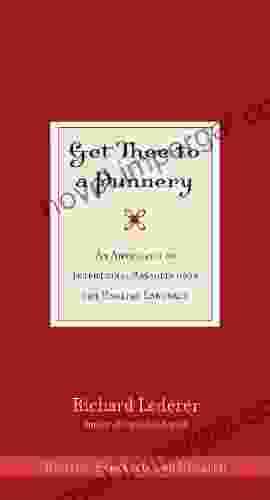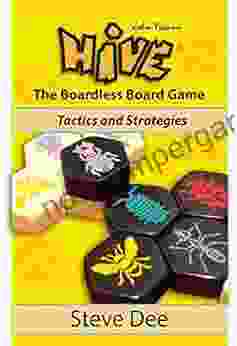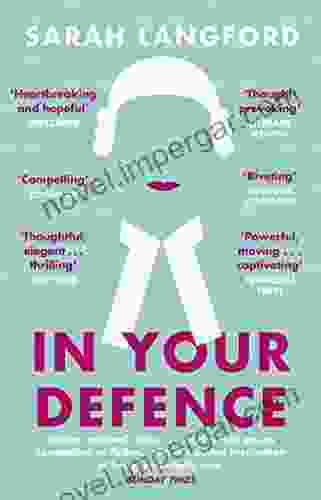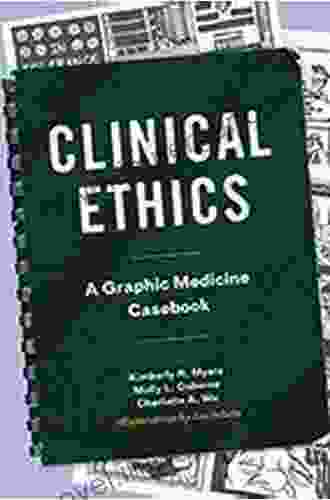Get Thee to Punnery: A Whetstone for Thy Wit

Puns are one of the oldest and most beloved forms of humor. They can be found in cultures all over the world, and they have been used by everyone from William Shakespeare to Groucho Marx. But what exactly is a pun, and how can you use them to make your writing and speaking more humorous?
In this comprehensive guide to the art of puns, you will learn everything you need to know about these linguistic gems. You will learn about their history and etymology, their various forms and techniques, and how to use them effectively in your own writing and speaking. You will also find plenty of examples of puns, both good and bad, so that you can learn from the masters and avoid the pitfalls.
4.2 out of 5
| Language | : | English |
| File size | : | 4033 KB |
| Text-to-Speech | : | Enabled |
| Screen Reader | : | Supported |
| Enhanced typesetting | : | Enabled |
| Word Wise | : | Enabled |
| Print length | : | 196 pages |
Whether you are a seasoned punster or a complete novice, this book has something for you. So get ready to sharpen your wit and unleash your inner punster with Get Thee to Punnery!
Chapter 1: The History and Etymology of Puns
The word "pun" comes from the Latin word "pungere," which means "to prick" or "to puncture." This is a fitting etymology, as puns often rely on a sudden and unexpected shift in meaning to create humor. The earliest known puns date back to ancient Greece, and they have been popular ever since.
Puns have been used by some of the greatest writers and speakers in history. William Shakespeare was a master of the pun, and he used them to great effect in his plays and sonnets. Other famous punsters include Mark Twain, Oscar Wilde, and Groucho Marx.
Chapter 2: The Different Forms of Puns
There are many different forms of puns, but they all share one common feature: they rely on a play on words to create humor.
- Homonyms are words that sound the same but have different meanings. For example, the word "bank" can refer to a financial institution or to the side of a river. A pun that uses homonyms might say something like, "I went to the bank today to deposit my money, but I ended up on the wrong bank."
- Homophones are words that sound the same but have different spellings and meanings. For example, the words "there," "their," and "they're" are all homophones. A pun that uses homophones might say something like, "I went to the store to buy some flour, but they're all out."
- Paronyms are words that are similar in sound but have different meanings. For example, the words "affect" and "effect" are paronyms. A pun that uses paronyms might say something like, "The doctor's affect on his patients was very effective."
These are just a few of the many different forms of puns. With a little creativity, you can come up with your own puns.
Chapter 3: The Techniques of Punning
There are a few different techniques that you can use to create puns. One common technique is to use homonyms or homophones to create a surprise ending. For example, the pun "Why did the scarecrow win an award? Because he was outstanding in his field!" uses the homophone "outstanding" to create a humorous twist.
Another common technique is to use paronyms to create a double meaning. For example, the pun "What do you call a boomerang that doesn't come back? A stick!" uses the paronyms "boomerang" and "stick" to create a humorous play on words.
With a little practice, you can master the techniques of punning and start creating your own humorous wordplay.
Chapter 4: How to Use Puns Effectively
Puns can be a great way to add humor to your writing and speaking. However, it is important to use puns sparingly and effectively. Too many puns can become tiresome, and puns that are too forced or obscure can be confusing or annoying.
Here are a few tips for using puns effectively:
- Use puns sparingly. Too many puns can become tiresome, so only use them when they are truly funny and appropriate.
- Make sure your puns are clear and understandable. Avoid puns that are too forced or obscure, as they can be confusing or annoying.
- Use puns to make a point. Puns can be a great way to emphasize a point or to make a humorous observation.
- Be aware of your audience. Not everyone appreciates puns, so be mindful of your audience when you are using them.
With a little practice, you can learn to use puns effectively to add humor to your writing and speaking.
Puns are a versatile and powerful form of humor. They can be used to make people laugh, to make a point, or to simply show off your wit. With a little practice, you can master the art of puns and start using them to add humor to your own writing and speaking.
So what are you waiting for? Get thee to punnery!
4.2 out of 5
| Language | : | English |
| File size | : | 4033 KB |
| Text-to-Speech | : | Enabled |
| Screen Reader | : | Supported |
| Enhanced typesetting | : | Enabled |
| Word Wise | : | Enabled |
| Print length | : | 196 pages |
Do you want to contribute by writing guest posts on this blog?
Please contact us and send us a resume of previous articles that you have written.
 Book
Book Novel
Novel Page
Page Chapter
Chapter Text
Text Story
Story Genre
Genre Reader
Reader Library
Library Paperback
Paperback E-book
E-book Magazine
Magazine Newspaper
Newspaper Paragraph
Paragraph Sentence
Sentence Bookmark
Bookmark Shelf
Shelf Glossary
Glossary Bibliography
Bibliography Foreword
Foreword Preface
Preface Synopsis
Synopsis Annotation
Annotation Footnote
Footnote Manuscript
Manuscript Scroll
Scroll Codex
Codex Tome
Tome Bestseller
Bestseller Classics
Classics Library card
Library card Narrative
Narrative Biography
Biography Autobiography
Autobiography Memoir
Memoir Reference
Reference Encyclopedia
Encyclopedia Tori Marsh
Tori Marsh Sorpong Peou
Sorpong Peou Sherry Hutt
Sherry Hutt W M Bernstein
W M Bernstein Sharon Korbeck
Sharon Korbeck Rose Hall
Rose Hall Roberta Simpson Brown
Roberta Simpson Brown Samuel Hayes
Samuel Hayes Yasmin Akhtar
Yasmin Akhtar Roland Denzel
Roland Denzel William Zsenyuk
William Zsenyuk Richard Panek
Richard Panek Robin Clifford Wood
Robin Clifford Wood Robert C Schneider
Robert C Schneider Trevor Ngwane
Trevor Ngwane Robert L Hilliard
Robert L Hilliard Victoria E Kress
Victoria E Kress Scott Boyter
Scott Boyter Rick Canton
Rick Canton Stanley Mutsatsa
Stanley Mutsatsa
Light bulbAdvertise smarter! Our strategic ad space ensures maximum exposure. Reserve your spot today!
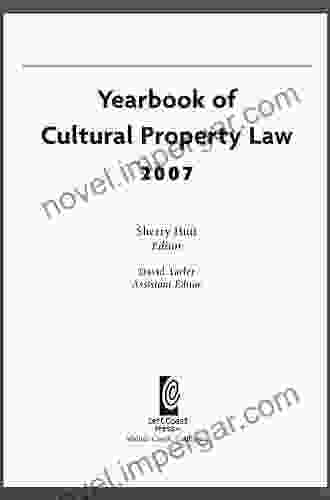
 Art MitchellYearbook of Cultural Property Law 2007: A Comprehensive Guide to the Legal...
Art MitchellYearbook of Cultural Property Law 2007: A Comprehensive Guide to the Legal... Louis HayesFollow ·16.3k
Louis HayesFollow ·16.3k Ira CoxFollow ·5.4k
Ira CoxFollow ·5.4k Martin CoxFollow ·5.9k
Martin CoxFollow ·5.9k Corey HayesFollow ·5.3k
Corey HayesFollow ·5.3k Brennan BlairFollow ·11k
Brennan BlairFollow ·11k Jan MitchellFollow ·5.8k
Jan MitchellFollow ·5.8k Devin CoxFollow ·11.2k
Devin CoxFollow ·11.2k Carl WalkerFollow ·19k
Carl WalkerFollow ·19k
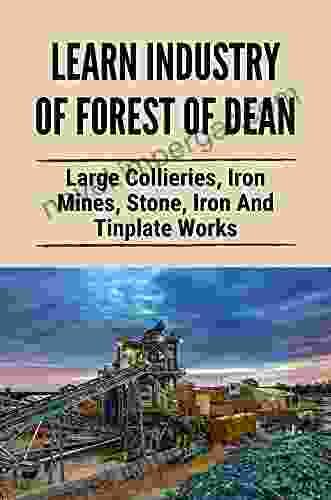
 Colt Simmons
Colt SimmonsLarge Collieries Iron Mines Stone Iron And Tinplate...
Step back in time and witness...
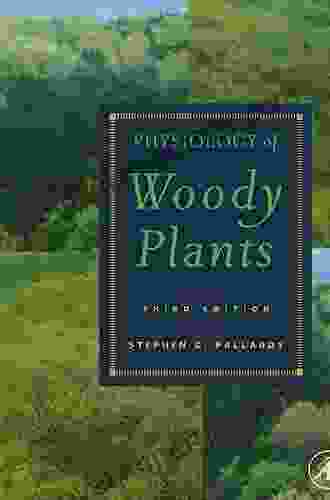
 Zachary Cox
Zachary CoxUnlocking the Secrets of Woody Plants: An In-Depth...
: Embark on a captivating journey into the...

 Yasunari Kawabata
Yasunari KawabataIntroducing 'Librarian Guide: 3rd Edition' – The Ultimate...
In the dynamic and ever-evolving...

 Jerome Blair
Jerome BlairEvading Honesty: A Masterful Exploration of Deceit and...
Prepare to be captivated...
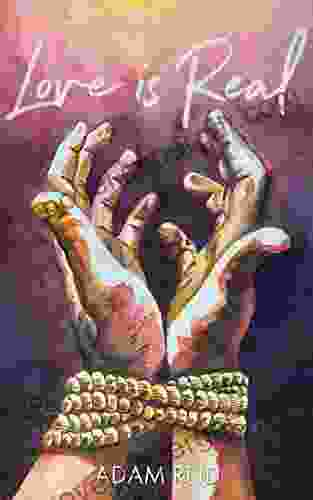
 Timothy Ward
Timothy WardLove Is Real: A Novel of Love, Loss, and the Enduring...
Prepare to embark on a...
4.2 out of 5
| Language | : | English |
| File size | : | 4033 KB |
| Text-to-Speech | : | Enabled |
| Screen Reader | : | Supported |
| Enhanced typesetting | : | Enabled |
| Word Wise | : | Enabled |
| Print length | : | 196 pages |


